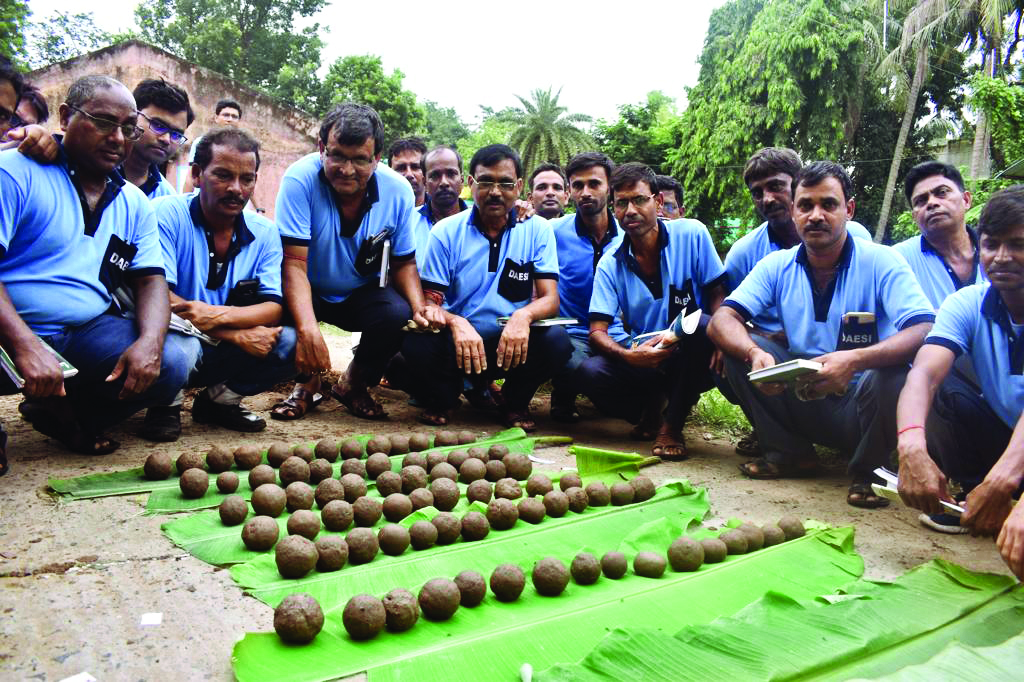State adopts seed ball technique for afforestation in wastelands

Kolkata: The West Bengal Comprehensive Area Development Corporation (WBCADC) and Krishi Vigyan Kendra (KVK), Sonamukhi in Bankura have adopted a seed ball campaign for afforestation in the wastelands in districts where facilities of irrigation, which is essential for cultivation, are a far cry.
“The seed balls that have been discharged are tailor-made with the intention of growing drum sticks — popularly known as Moringa — in Sonamukhi, Patrasayer and Bishnupur blocks under Bishnupur sub-division. We have plans to utilise as much wastelands as possible in all the 22 blocks of the district gradually,” Moumita Gupta, programme coordinator of KVK, Sonamukhi said. From July to August, around 3,500 seed balls have been spread and considering its 40-90 per cent survival range, it is hoped that at least 2,000 plants can be grown.
High yielding variety Moringa has been chosen as it is believed to be capable of recharging the groundwater as well. In October, the KVK has plans to take up plantation of Subabul trees.
The seed ball technique involves encapsulating seeds within a mixture of soil, clay, and nutrients to create compact balls that can be dispersed across land. This technique offers numerous environmental and agricultural benefits.
According to a senior official of CADC, seed ball technique offers a range of benefits like biodiversity enhancement using native plant species as the technique supports local flora and fauna, contributing to biodiversity conservation.
The seed balls provide a protective layer that prevents soil erosion and compaction, aiding in soil health and water retention. The technique aids in reforestation efforts by enabling seedlings to establish in areas with poor soil quality or limited access to traditional planting methods.
Most importantly, seed balls are cost-effective to produce and distribute, making large-scale initiatives more feasible. Normal plantation in wasteland is an expensive affair. The protective casing of the seed ball retains moisture, reducing the need for frequent watering during germination.
The Bankura North Forest Division recently used seed ball for plantation in a portion of Susunia Hills in Bankura that has remained barren for nearly 20 years.
The Susunia Hills are elephant-prone and so the conventional way of plantation cannot be pursued as the saplings get destroyed after being trampled by the tuskers.
Around 200 seed balls were scattered over 2 hectares of land.



